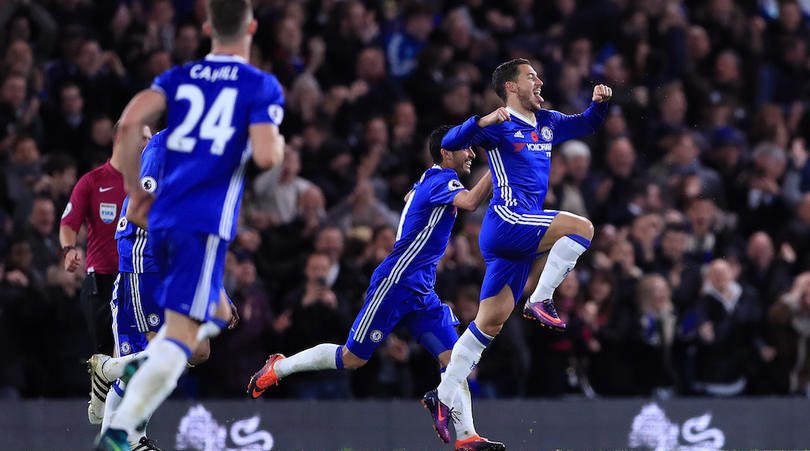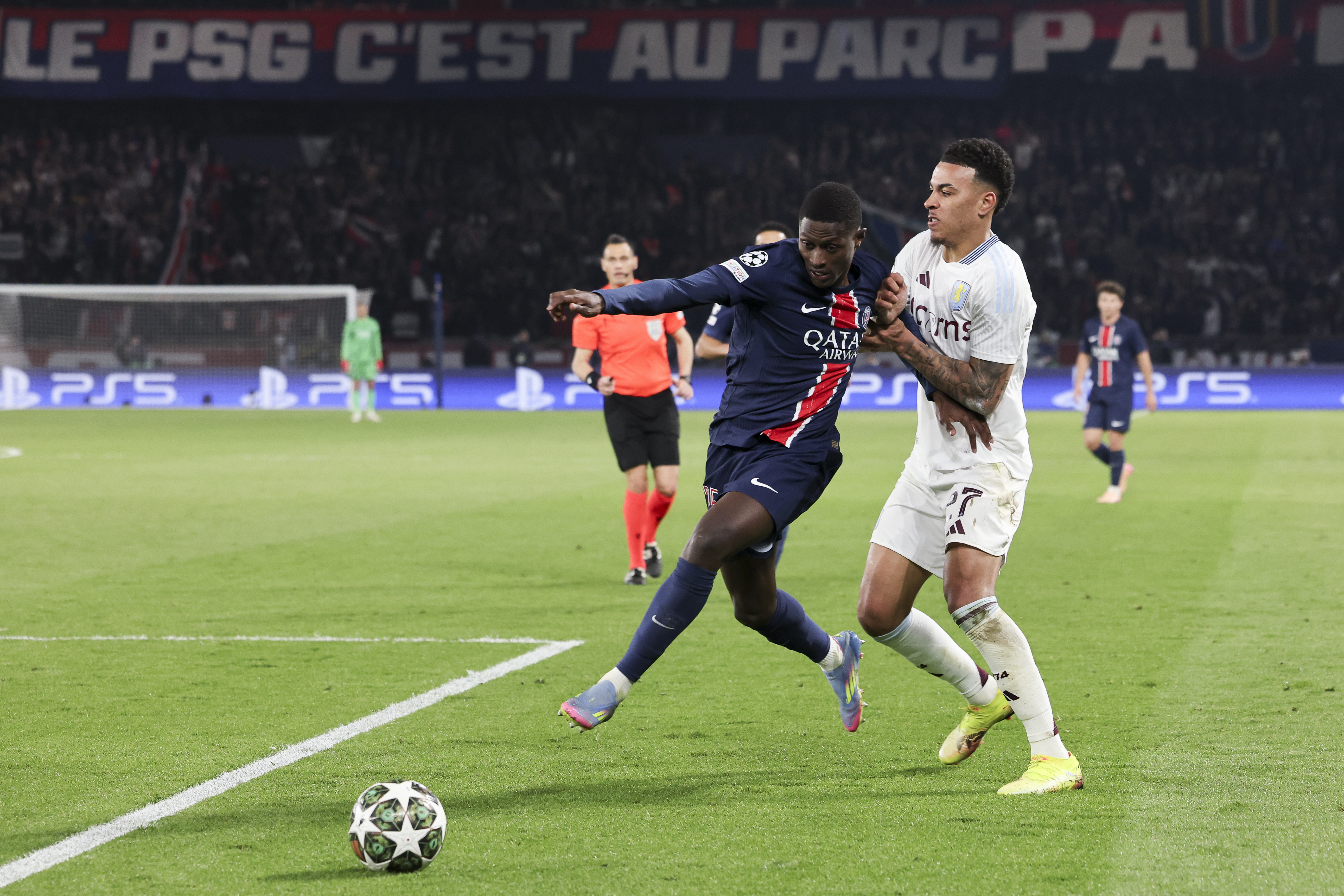FourFourTwo's Tactical Review: Formation change brings success for Spurs and Boro, failure for Everton and Watford
Thore Haugstad uses Stats Zone to analyse how various tactical tinkerers got on this weekend
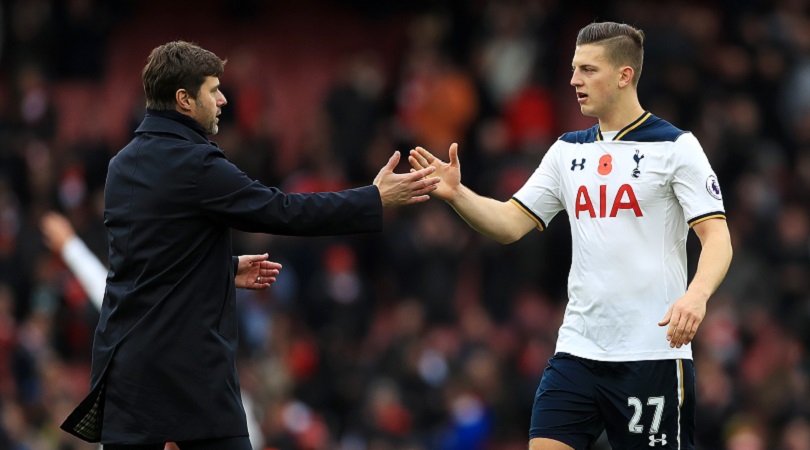
Tactical variation can provide the element of surprise that tips a game in your favour – or at least that was the hope among several managers who spent the weekend yanking rabbits from hats. Several teams veered from their default systems, among them Tottenham and Middlesbrough, who secured satisfying draws at Arsenal and Manchester City respectively. But experimentation brought only disaster for Everton, who lost 5-0 to Chelsea, and Watford, hammered 6-1 by Liverpool.
1. Conte outwits copycat Koeman
By that stage Koeman acknowledged that his strategy had failed by returning to a back four
One would imagine four league games would provide enough material for rival managers to at least get close to sussing out Antonio Conte’s 3-4-3, but nobody really seems to know how to deal with it.
One of the more pragmatic attempts had come from Claudio Ranieri, who, having seen Chelsea outplay his 4-4-2 at Stamford Bridge, switched his Leicester side to a 3-4-3 to match them up. That didn't prevent a 3-0 defeat, yet Koeman tried the same here, with Ashley Williams, Phil Jagielka and Ramiro Funes Mori fielded in a back three in an attempt to stop Eden Hazard, Diego Costa and Pedro.
Get FourFourTwo Newsletter
The best features, fun and footballing quizzes, straight to your inbox every week.
This initially worked reasonably well in established play, but in the 19th minute the Toffees made the mistake of losing the ball in central midfield and in turn inviting a quick break. With their wing-backs positioned far upfield, Chelsea could attack three versus three, and it didn't help that Hazard was set loose on Williams, who was always going to struggle to keep up when the Belgian cut inside to fire home his fourth goal in four league games.
As if that wasn’t bad enough for Koeman, the jubilant home crowd had barely sat back down when Chelsea raced forward again; this time Costa released Pedro, whose cross was slotted in by Marcos Alonso. By that stage Koeman acknowledged that his strategy had failed, with Kevin Mirallas brought on for Bryan Oviedo in the 36th minute to permit a return to a back four.
Still, the damage was long done, and Chelsea added three more through Costa, Hazard and Pedro. Even more impressively, they limited Everton to one attempt of any kind: a shot over the bar from Mirallas. “It’s a difficult system to play against,” said Koeman, thus authoring the understatement of the week.
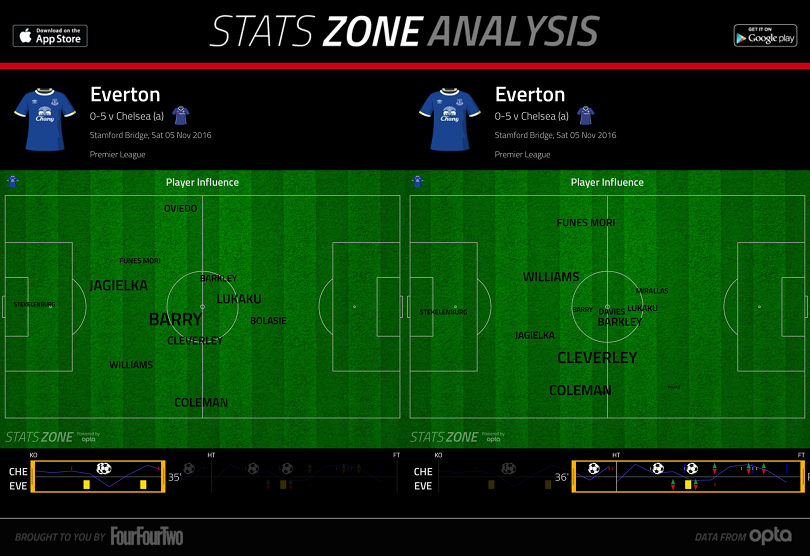
2. Pochettino tweak surprises Arsenal
Tottenham's switch disrupted Arsenal’s build-up play, with Theo Walcott later admitting that the switch had caught them completely by surprise
Mauricio Pochettino had more success switching to a back three. Despite starting an unfit striker and missing Dele Alli through injury, Spurs left the Emirates with a point after using a back three for a first time since beating Watford 2-1 last December.
The visitors pushed wing-backs Danny Rose and Kyle Walker upfield to close down Hector Bellerín and Nacho Monreal, while a midfield trio of Moussa Dembélé, Victor Wanyama and Christian Eriksen made it three versus three in the centre.
This disrupted Arsenal’s build-up play, with Theo Walcott later admitting that the switch had caught them completely by surprise. The outside centre-backs stood high to recover the ball quickly for Spurs, while their two strikers closed down Arsenal's central defenders.
However, part of what made it work also triggered risks: with the Spurs wing-backs upfield, the back three were often unprotected when Alexis Sánchez and wingers Walcott and Alex Iwobi were released quickly.
In fact Arsenal were unfortunate not to score from one of these breaks, given that Walcott hit the woodwork, Mesut Özil missed a fine chance and Iwobi did likewise. Further opportunities would have emerged had seven of their passes not been sent to players in offside positions.
The Gooners took the lead anyway when Kevin Wimmer flicked a free-kick into his own net, but Laurent Koscielny fouled Dembélé to concede a penalty that was converted by Harry Kane, leaving Wenger without a win in his last five north London derbies.
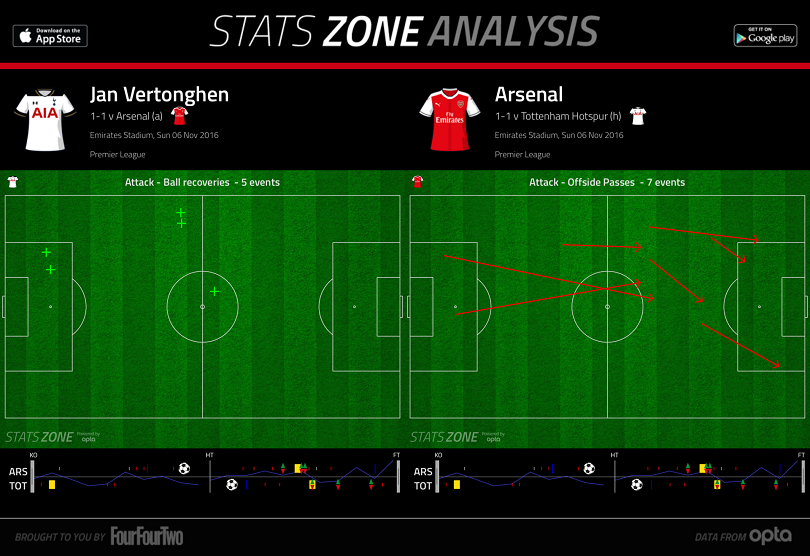
3. Rigid Boro stun City
They flooded the midfield and kept their lines extremely close together, as well as being wary of venturing too far forward
Spurs and Arsenal will be happier with a point than Pep Guardiola, who now has just one victory in his last five league matches. City's third consecutive top-flight draw at home had familiar failings: an inability to convert chances, vulnerability at the back and difficulty in breaking down defensive opponents.
Boro chose an approach similar to when they held Arsenal at the Emirates, employing a 4-5-1 in the absence of suspended playmaker Gastón Ramírez. They flooded the midfield and kept their lines extremely close together, as well as being wary of venturing too far forward in order not to lose their shape. “People say, ‘use the counter-attack,’’’ Guardiola bemoaned after. “But how are we supposed to use the counter-attack when the opponent don’t attack?”
Still, City did create enough chances to win. A rare break saw Kevin De Bruyne fire just wide, before the Belgian took out the entire Boro defence with a deep cross that was converted by Agüero. But Boro lifted their game in the second half, despite completing just one pass inside the City box and having 29% possession; after Agüero had missed a sitter and De Bruyne an open goal, Boro's defensive midfielder Marten de Roon popped up in stoppage time to nod in an equaliser.
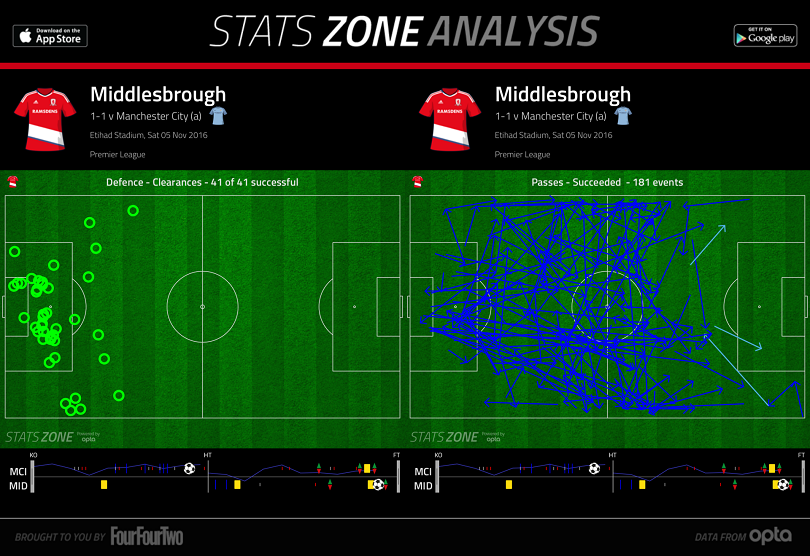
4. Back four backfires for Mazzarri
While various managers were experimenting with a back three, Walter Mazzarri decided to ditch his, and his choice of fielding an uncharacteristic back four yielded a chastening 6-1 defeat at Anfield. Whatever the intention behind shelving the 3-5-2 was it didn’t work, as the rampant Reds raced into a 3-0 lead at half-time.
In truth, one could question whether alternative tactics would have made a difference anyway, given the incredible level at which Liverpool performed. Their coherent counter-pressing led to a ludicrous 83 ball recoveries and 28 attempts. No fewer than 17 of those hit the target – the most in a single Premier League game since Opta began recording statistics in 2003/04. “From the teams we’ve played, there’s no doubt they're the team I’m most impressed with,” Mazzarri concluded.
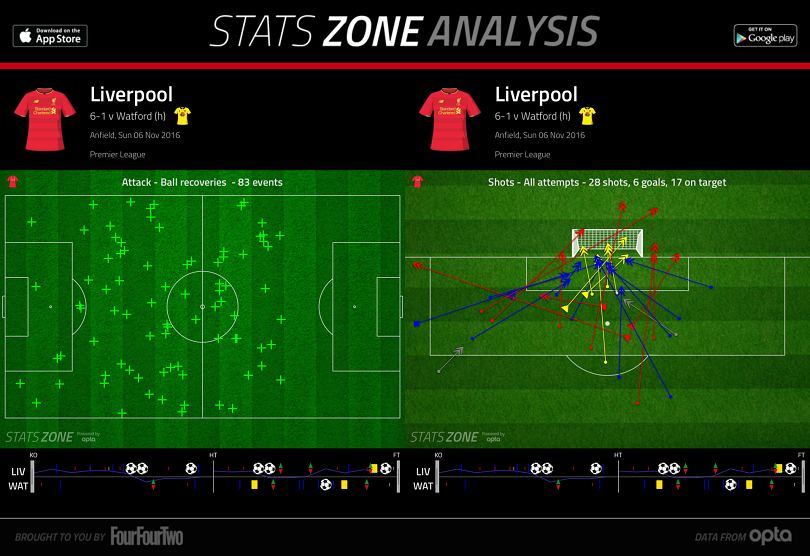
STATS ZONE Free on iOS • Free on Android
